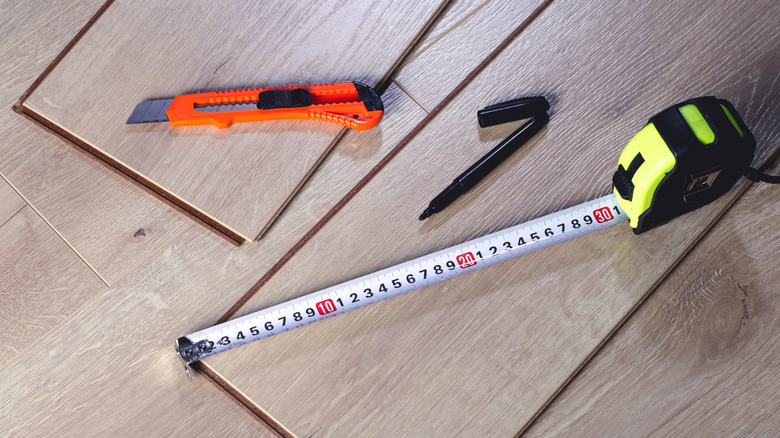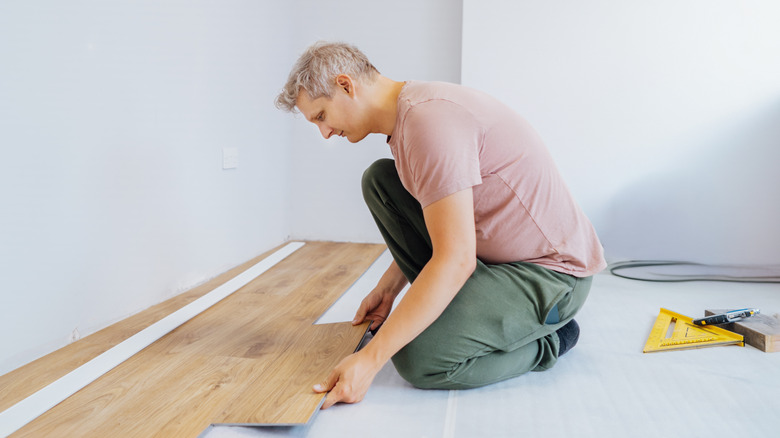The Hack That Makes Measuring & Cutting Vinyl Plank Floors A Breeze
Vinyl plank flooring is understandably very popular. It's affordable, and it comes in an enormous range of designs that mimic both wood and stone. If you're wondering whether vinyl plank flooring is right for your space, consider that it's typically easy to find a match for different decors, and it's also relatively straightforward for DIY enthusiasts to install. If your walls aren't absolutely straight, however, it can be challenging to get a good fit. Fortunately, there's a clever hack that makes accurately measuring and cutting vinyl planks a breeze.
This method only requires you to use an ordinary flat washer as a guide; you may already have one hiding in a jar of other assorted odds and ends, but they can also be picked up for next to nothing at hardware stores. The technique is to place the plank as close to the wall as possible, then rest a large flat washer on top. Insert a marker or pencil into the hole, and run the edge of the washer along the wall, following its contours. If you keep your marker steady, you'll be left with a line that shows you exactly where to cut your flooring piece so it will line up perfectly with the uneven surface.
How to tackle other vinyl plank flooring challenges
Since you're checking out hacks for fitting vinyl plank flooring, it's fair to assume you've considered the pros and cons of hiring a professional to install your flooring, and decided to tackle the job yourself. There are a couple of tips you should take into consideration that will help to ensure a high-quality finish and keep you working safely.
Vinyl plank flooring can often be cut with a utility knife, but cutting curves or complex shapes in some types — like hard-wearing stone plastic composite, which gives the look of real stone without the cost — is best done with a jigsaw. These tools aren't necessarily expensive. The Black and Decker corded jigsaw is ideal for this kind of work and can be found for under $40. Just keep in mind that whenever you're using a powered saw, safety glasses are a must. Wearing a lightweight mask like those available from 3M is also a good idea to keep you from breathing in any dust.
The washer hack is great for curves, but the ins and outs around doorways present a more difficult challenge. The simplest way to deal with these and any other complex shapes you come across is to use a contour gauge, which can save you hours of frustration. These are easy to set up, and help to keep you from wasting material — and they're available for as little as $15.

